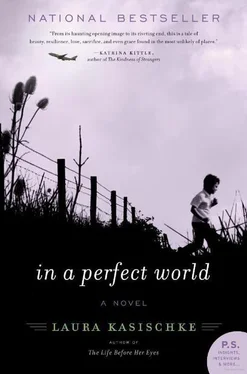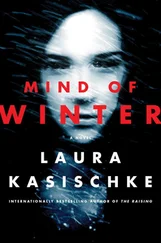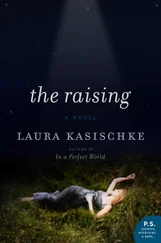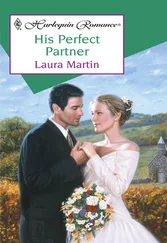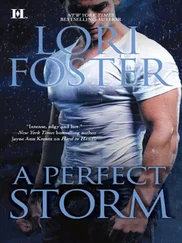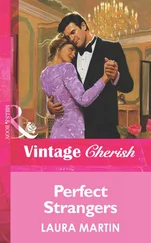At the checkout line, they stood and waited for the girl behind the cash register to finish a phone conversation before scanning their purchases.
“That’s none of her business,” the cashier hissed and whispered. “She can kiss my ass.”
She had her back turned to them, as if they would not be able to hear her words if they couldn’t see her mouth, so they waited in the lane, surrounded by the usual magazines and tabloids, which were covered with the usual headlines:
PRESIDENT THREATENS WAR OVER EUROPEAN VACCINATION HOARDING
LOSE TEN POUNDS IN TWO WEEKS.
MOTHER SCREAMS, “DON’T LET MY BABY DIE!”
Every one of those magazines was at least two months old. Sara picked up a People and put it back down, shaking her head.
Finally, the girl behind the cash register got off the phone and rang up their purchases wearily. Each time she scanned an item she seemed to also glance at her watch. She looked pregnant and was wearing a green apron over her protruding stomach and, under the apron, a dress with yellow tulips on it.
Was it possible that she smelled a bit like whiskey? Could that sweet, hot scent be her perfume, or did the smell drift over only when the girl opened her small, glossy red mouth?
When she’d finally scanned the last item, the cashier looked at her watch for several seconds, as if timing something internal before she looked up, sighing, and asked, “That it?”
“Yes,” Jiselle said, and paid in cash.
The man who had been unloading boxes from the semi was sitting now, unmoving, behind the wheel of his truck in the parking lot. He blared his horn when they passed in front of him, and it felt physical, that noise—Jiselle and the girls stumbled a bit, their cart veering slightly out of control. Sara was pushing, Camilla was walking beside her, and Jiselle quickly stepped between the two of them, linking their arms through hers, hurrying to the Mazda. “Fucking asshole,” she said, and she saw the girls exchange amused looks. It crossed Jiselle’s mind to say something to them then—about men, about being careful, now that they were a house without a man in it, but when she began to form the first part of the first sentence, she could not find the words. Instead, she kept their arms hooked around hers.
Jiselle turned the radio back on to the oldies station. She was about to turn right into the road when she realized that the long stream of vehicles passing the Safeco exit was a funeral procession. “Shit,” she said before she could keep herself from saying it. The procession was, of course, going in her direction. Who knew how long they’d have to wait? Sara took a fingernail file out of her purse and began to file her nails. Camilla opened a months-old Elle she’d bought at the store and began to page through it. Jiselle took a deep breath and listened to the song on the radio until she realized that it was—maybe loud enough for those slow-moving mourners to hear—“Na Na, Hey Hey, Kiss Him Goodbye.”
She snapped it off.
She bit her lip.
When she looked over, Camilla was also suppressing a smile, and then they all three started to laugh at the bad joke of it, the morbid coincidence, as car after car continued to pass, headlights shining garishly in the bright sun, little funeral parlor flags snapping from their antennas, until finally the last one, a Mazda just like Mark’s, passed, and the driver, a middle-aged man in a black suit, waved to them as if to let them know the procession was over. He was smiling brightly, not like a mourner. Still, Jiselle hesitated before following him into the road, joining the procession.
“Oh, forget it,” she said, turning left instead of right. “Let’s take the long way, or we’ll be behind them for days before they turn off at the cemetery.”
“Definitely,” the girls agreed.
“Can we turn the radio on again?” Sara asked from behind her.
Jiselle turned it on again. The song was, “Baby, It’s You.”
The long way home took them past the car dealership—where a salesman was sitting in a lawn chair, seeming to be staring up at the sun—and past the library, closed down with the other nonessential public services, and then past the high school, where the flag had been taken down. Nothing flapped there but a loose gray piece of rope.
Then they passed Sam’s school, Marquette Elementary, where the statue of Father Marquette stood in an overgrown garden with his arms open. A white plastic grocery bag was snagged around one of his wrists. The bronze plaque below the statue appeared to have been hacked away from the base, a gouged square in its shape left behind. (Was it simple vandalism, Jiselle wondered, or was there some value in bronze?) She remembered, months before, getting out of her car while waiting for Sam after school to read that plaque. She had learned that Jacques Marquette had stopped in the area during his explorations, due to poor health, and had written his journals there.
She thought, then, of Sara’s journal. All those hours she spent now hunched over, when she wasn’t crocheting, the tiny little letters spilling out of her furiously across the pages.
“Maybe that girl will be the great chronicler of these times,” Paul Temple had said. “Keeping a record of it all. You’ve heard of Brother Clynn, during the Black Plague in Ireland? He was the last monk alive in his cloister, writing a letter to the future he assumed no one would live to see. The last sentence of his journal was ‘Waiting among the dead for death to come,’ and then, written in another hand, ‘And here it seems the author died…’”
“Oh, Paul,” Jiselle had said, “don’t tell me that.”
“I’m sorry,” he’d said, laughing as he apologized. “But at least talking doesn’t make anything happen.”
They drove home along the ravine, dark and leafy-green at the same time. When they were only a few miles from home, they came upon several police cars and a fire engine idling and, along with them, a double row of parked cars. A small crowd of people had gathered, standing in a little huddle, almost as if they were posing for a photograph but looking down into the ravine instead of at a camera.
“Stop,” Camilla said. “Shouldn’t we see what it is?”
“I don’t know,” Jiselle said, but she was slowing down as she said it. “I mean, do we—”
“We have to see,” Sara said. “We can’t just drive by. Something’s going on.”
Jiselle pulled the Mazda over. She put the car in park, and she and the girls got out and walked over to the little gathered group.
No one was speaking. The only sound was the raspy call of a crow overhead and the sound of the fire engine idling, wasting fuel.
Jiselle and the girls came up behind the small crowd and stood on their tiptoes but still could see nothing, so they walked beyond them to the edge of the ravine and looked down.
At first, Jiselle thought she was looking down on flowers—a blurred garden, a wall of flowers built around a heap of flowers—roses and peonies, perhaps covered with a thin sheet of frost so that the flowers shimmered. An enchanted garden. Then she blinked.
No.
This was something else.
Down there in the shadows and among the foliage, she recognized first the face of a goat turned up to her. Its hollow eyes. Its jaw hanging open. Its implacable expression. And then others came into focus:
A bloated cow and what seemed to be a lamb tossed onto its side. Kittens, curled into a mass—or were they rabbits? A scrawny dog or a coyote. A small horse, which seemed to be bowing on its knees like a circus animal performing a trick.
The smell of it, also flowery, overpoweringly sweet and rotten, drifted up to her on the breeze, and Jiselle put her hand over her face and mouth but didn’t gasp until she saw movement—the black shadow of a rat darting under the horse’s pale corpse.
Читать дальше
